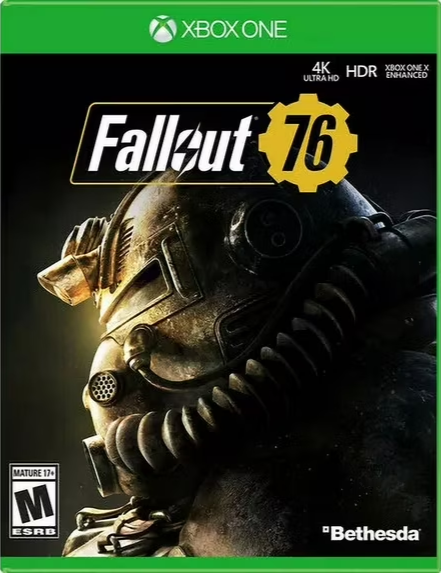

Fallout 76 is a multiplayer online action, first-person shooter, role‑playing game. The game serves as a narrative prequel to previous entries in the Fallout series and is set in Appalachia, a post‑apocalyptic version of West Virginia. Twenty‑five years after a nuclear war devastated the world, residents of Vault 76 emerge on “Reclamation Day” to explore, rebuild, and begin reclaiming the surface of society. Unlike earlier games in the series, there is no single protagonist; instead, each player creates their own customizable character and forges a unique path through the wasteland.
The gameplay revolves around a vast open world shared with other online players. Appalachia has diverse environments and includes forests, swamps, mountains, and irradiated areas. Real‑world locations such as the cities of Charleston and Morgantown, the New River Gorge Bridge, the Greenbrier Resort, and folklore creatures like the Mothman appear throughout the map. Core Fallout mechanics are present: real‑time combat includes firearms, melee weapons, and explosives, while stealth and V.A.T.S. are integrated - with V.A.T.S. acting as a real‑time targeting assist rather than pausing time. Weapons and armor degrade through use, requiring constant scavenging of abandoned buildings and settlements to repair or replace them.
Character progression uses a distinctive perk card system instead of traditional skills. Players allocate attribute points among S.P.E.C.I.A.L. categories (Strength, Perception, Endurance, Charisma, Intelligence, Agility, Luck) and then equip perk cards that correspond to those attributes. Each card consumes points, and higher‑level cards can be crafted by combining duplicates. This allows dynamic builds (for example, stealthy snipers, heavy‑gun brawlers, or support‑oriented characters) because cards can be swapped at any time using Punch Card Machines. Perk card packs are awarded regularly as players level up, giving access to more abilities.
Survival systems are integral to the gameplay experience. Players must monitor hunger, thirst, radiation exposure, and disease. On tougher difficulty settings, neglecting these needs can result in severe penalties or even death. Resource management is critical: junk items are broken down into components for crafting and construction, while workbenches and cooking stations allow players to modify gear and prepare consumables that affect wellbeing. In the community, players often build farms (e.g., growing corn for soup to satisfy both hunger and thirst) and use mutations or perks like Herbivore or Carnivore to make survival easier.
A core gameplay feature is the C.A.M.P. system, which allows players to build modular, portable bases in the world. These camps can include structures, defenses, crafting stations, and cooking areas, and can be relocated as desired. In addition, public workshops situated across the map let players construct larger installations but also attract threats and rival players.
Initial releases lacked human NPCs, relying instead on holotapes, robots, and environmental storytelling. The Wastelanders update (April 2020) introduced human characters, dialogue trees, and branching quests. Another, later notable addition is the Expeditions mode, introducing content beyond Appalachia and new storyline missions set in different environments like The Pitt (Pittsburg, PA). Players may cooperate or compete with others, engaging in PvE or PvP scenarios. High‑level players can trigger nuclear missile launches, transforming parts of the map into irradiated zones teeming with powerful enemies and rare resources.